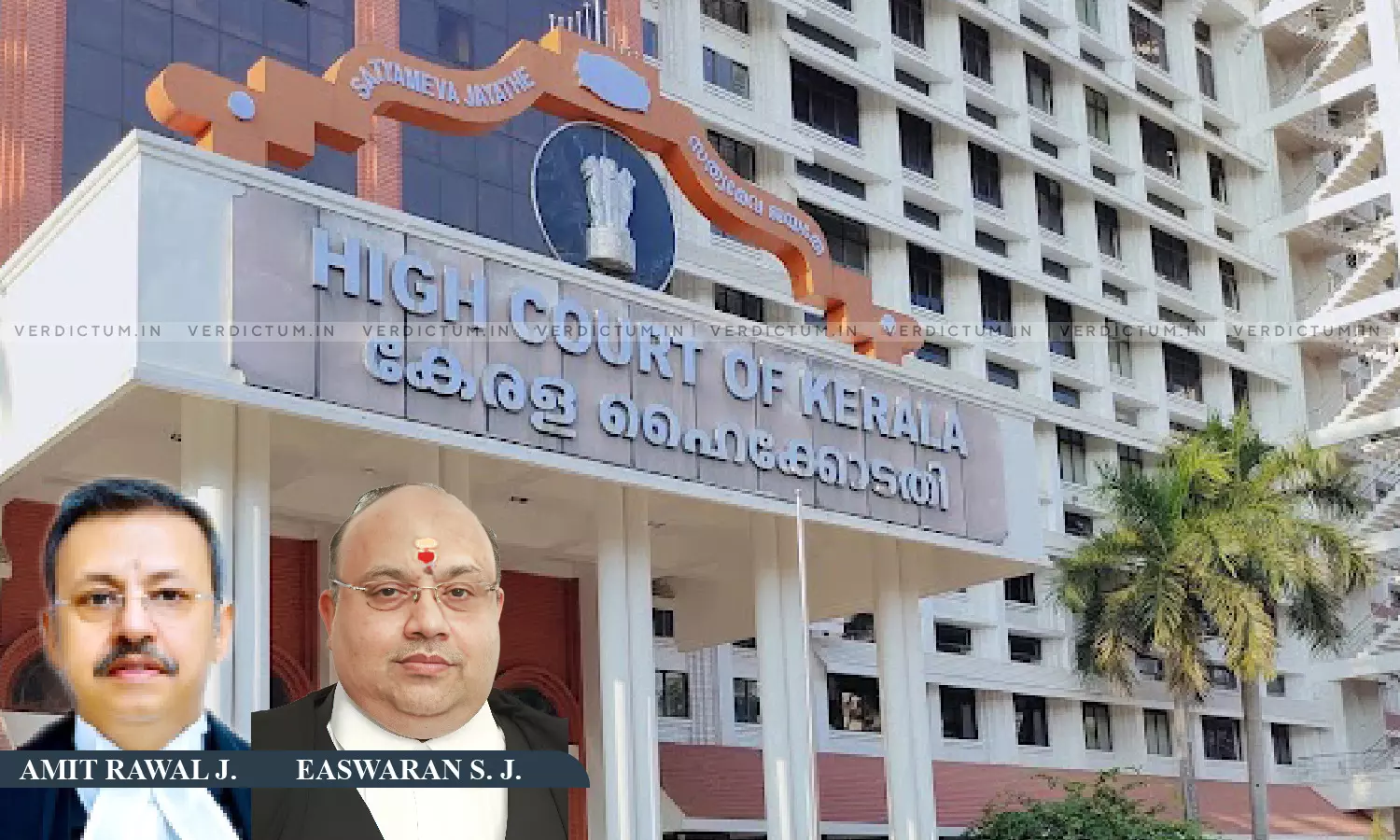
Office Memorandum Doesn’t Prevent Authorities From Proceeding Against Employee For Premature Retirement If His Service Found Unsatisfactory: Kerala HC
 |
|The Kerala High Court held that the Office Memorandum does not prevent authorities from proceeding against an employee for premature retirement if his/her service is found to be unsatisfactory.
The Court held thus in an original petition in which the question raised was whether an order passed under Rule 56(j) of the Fundamental Rules, 2017 read with Rule 48 of the Central Civil Services (Pension) Rules, 1972 could be judicially reviewed by the Central Administrative Tribunal (CAT).
A Division Bench of Justice Amit Rawal and Justice Easwaran S. observed, “It is true that the Office Memorandum stipulates that no Government servant should ordinarily be retired on the ground of ineffectiveness, if, his/her service during the preceding 5 years or when promoted to a higher post during that 5 year period, service in the higher post is found to be satisfactory. The Office Memorandum, in our view, does not cast an obligation on the authorities preventing them from proceeding against an employee for premature retirement, if on a cumulative assessment his/her service is found to be unsatisfactory. Even if we apply clause 10(iv) as contended by the learned counsel for the respondent/applicant, we cannot ignore, with the same breath, clause (v) which provides consideration of the entire service records of a government servant at the time of review.”
Standing Counsel Sajith Kumar V. appeared on behalf of the petitioners while Advocate T. Madhu appeared on behalf of the respondent.
In this case, the respondent/applicant before the CAT, challenged an order by which she was prematurely retired from service in the year 2022. She joined the service of the Lakshadweep Administration as a stenographer in 1990 and thereafter, was transferred to the office of the Deputy Collector. During November 2019, she was transferred and posted as Stenographer Grade-II (PA to DIG) at the Police Headquarters, Kavaratti. Before completing three years of service there, she was transferred to the office of LPWD, Amini. Challenging the said order, she preferred an application and the matter was later adjourned.
In the meantime, the respondent was served with an order issued under Rule 56(j) of the Fundamental Rules whereby she was prematurely retired from service. She challenged the same but the representation committee did not find any merit in her representation. However, the Tribunal concluded that the order of compulsory retirement could not have been imposed against the respondent based on the Office Memorandum issued by the Government of India, Ministry of Personnel & Public Grievances & Pension. Being aggrieved, the petitioners were before the High Court.
The High Court in the above context of the case enunciated, “… going by the dictum laid down by the Supreme Court in Pyare Lal (supra) and in Bihari Lal (supra), we are of the view that that the Tribunal completely went wrong in having a judicial review of the assessment made by the Screening Committee and consequential order being passed. The contention of the applicant that it cast a stigma on her when visited with the order of premature retirement does not impress us, especially when the order at Annexure-A1 does not cast any stigma on the applicant. Still further, her contention based on the Office Memorandum dated 28.8.2020 is equally fallacious, especially when it does not per se apply to the case of the applicant.”
The Court added that if the entire service record of the applicant is put to scrutiny by the Committee, then, it cannot be said under any circumstances that the Committee was misguided and that extraneous consideration fell into the hands of the Committee while recommending the case of the applicant for premature retirement.
“This being the position of law, when we analyse the order so passed by the Central Administrative Tribunal, we are afraid that we cannot subscribe to the findings of the Tribunal. In the order impugned, the Tribunal has specifically found that in the proceedings of the Committee there was no proper assessment or grounds existed in relation to her being found to be deadwood or being requested to be removed from the administration to improve performance or efficiency. At the risk of repetition, we reiterate that it was wholly outside the domain of the Tribunal to have undertaken such exercise”, it noted.
Furthermore, the Court said that even otherwise, no officer was impleaded in his personal capacity to sustain the plea of mala fides and therefore, it is evidently clear that the Tribunal abdicated while considering the application filed by the respondent/applicant.
“We are at pains to see how the Tribunal could undertake such exercise and proceed to find that there are mala fides on the part of the authorities. We are also surprised to note that even the applicant before the Tribunal had no such case. Read as may, we could not find any averment from the Original Application by which the applicant had raised grounds of mala fides in attack to the order of premature retirement”, it remarked.
The Court also emphasised that the confidential reports are often subjective, impressionistic and must receive sedulous checking as the basis for decision making. It said that the appropriate authority, nor the court, should take the decision even though there is a caveat to avoid misuse.
“We are also not impressed by the argument of the learned counsel for the respondent/applicant that the applicant had no disciplinary enquiry within a period of five years before her retirement. The result of the discussion leads to an irresistible conclusion that the order of the Tribunal is unsustainable and requires interference in exercise of the powers of this Court under Article 227 of the Constitution of India”, it concluded.
Accordingly, the High Court allowed the original petition and set aside the impugned order.
Cause Title- The Union Territory of Lakshadweep and Ors. v. P.P. Hajarommabi (Neutral Citation: 2024:KER:39066)